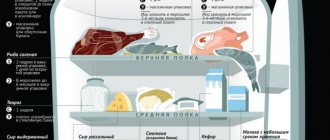Research shows¹ that refined carbohydrates are so appealing to the brain that they are addictive—in particular, they are more effective at activating reward-related nervous systems than naturally occurring, minimally processed foods.
More importantly, refined carbohydrates create addiction at a behavioral level - including the inability to give up such foods, despite the obvious negative health consequences. Below in the material we will look at examples of food with such carbohydrates.
What are refined carbohydrates?
Refined carbohydrates are also known as simple carbohydrates, processed carbohydrates, or bad carbohydrates.
There are two main types:
- Sugars : Refined and processed sugars such as sucrose (table sugar), high fructose corn syrup, and agave syrup.
- Refined cereals (cereals) : These are grains from which the fibrous and nutritional parts have been removed. The largest source is refined white wheat flour.
Unlike complex carbohydrates, refined carbohydrates have been stripped of nearly all of their fiber (dietary fiber), vitamins, and minerals. For this reason, they can be considered “empty” calories.
They are also quickly digested and have a high glycemic index. This means that after eating them, there is a rapid spike in blood sugar and insulin levels.
Eating foods with a high glycemic index is associated with overeating and an increased risk of developing many diseases (,).
Unfortunately, sugars and refined grains make up a significant portion of total carbohydrate consumption in many countries (, ,).
The main dietary sources of refined carbohydrates are white flour, white bread, white rice, baked goods, soda, snacks, pasta, sweets, breakfast cereals, sugar. They are also added to all types of processed foods.
Summary:
Refined carbohydrates include mainly sugars and processed grains. These are empty calories that cause rapid spikes in blood sugar and insulin levels.
Flour
Flour products are refined products. Moreover, white flour is considered the most harmful, as it is a carbohydrate “dummy”. The highest grade implies the best grade of purification. Wheat germ is considered a concentrate of vitamin E, a powerful antioxidant. But in production it is harmful, as it quickly deteriorates.
In 1822, a mill was invented, the principle of which is still used today. It allows you to obtain premium white flour. The production technology is based on isolating pure starch from the grain, but it is useless for health.
Refined cereals contain virtually no fiber and micronutrients
What are refined cereals and how do they differ from unrefined cereals?
Whole grains are very rich in fiber. They consist of three main parts:
- Bran : The hard outer layer containing fiber, minerals and antioxidants.
- Germ : A nutrient-rich core containing carbohydrates, fat, protein, vitamins, minerals, antioxidants and plant compounds.
- Endosperm : The middle layer containing mostly carbohydrates and a small amount of protein.
The bran and germ are the most nutritious parts of the whole grain. They contain high amounts of many nutrients such as fiber, B vitamins, iron, magnesium, phosphorus, manganese and selenium (, ,).
During the refining process, the bran and germ are removed along with all the nutrients they contain ().
The refining process leaves refined grains with almost no fiber, vitamins or minerals. All that remains is quickly digested starch with a small amount of protein. However, some manufacturers fortify their products with synthetic vitamins to compensate for some of the loss of nutrients.
There is still debate in scientific circles about whether synthetic vitamins have the same health benefits as natural vitamins. However, most people would agree that getting your nutrients from whole foods is always the best choice ().
A diet high in refined carbohydrates also reduces the amount of fiber you consume. Insufficient fiber intake is associated with an increased risk of developing diseases such as cardiovascular disease, obesity, type 2 diabetes, colon cancer and various digestive problems (, ,).
Summary:
When grains are refined, virtually all of the fiber, vitamins, and minerals are removed. Some manufacturers enrich their products with synthetic vitamins after purification.
Cooking methods and recommendations
I would like to offer several options on how to properly prepare cereals.
- First, I soak it for 3 hours at room temperature (minimum) or put it in the refrigerator overnight. Why do you need to soak? Soaking removes phytic acid from the grain. It disrupts the digestion of food and the absorption of fiber, vitamins, minerals, and protein. Without soaking, the benefits of cereals are significantly reduced.
- When soaking cereals, I add 2 - 3 tbsp. l. sauerkraut juice or 0.5 tsp. unrefined sea or Himalayan salt. In this case, the dishes are absorbed much better, and all the beneficial substances enter the body completely.
- It is also better to soak legumes (beans, lentils, peas) and brown rice in water for at least 8 hours. Soaking overnight is allowed.
Refined carbohydrates can lead to overeating and increase the risk of obesity
A large proportion of the population in developed countries is overweight or obese. Eating too many refined carbohydrates may be one of the main culprits (,).
Because refined foods are low in fiber and digest quickly, eating them can cause severe fluctuations in blood sugar levels, which can contribute to overeating ().
This is because foods with a high glycemic index promote a short-term feeling of fullness that lasts about an hour. On the other hand, foods with a low glycemic index promote a sustained feeling of fullness that lasts about two to three hours (, ).
Blood sugar levels drop about an hour or two after eating foods high in refined carbohydrates. This promotes the feeling of hunger and stimulates the parts of the brain associated with reward and cravings ().
These signals make you crave more food and are known to lead to overeating ().
Long-term studies have also shown that eating refined carbohydrates is associated with increased belly fat over five years (, ).
Additionally, refined foods can cause inflammation in the body. Some experts have suggested that this may be one of the main dietary causes of leptin resistance and obesity (, ).
Summary:
Refined carbohydrates cause rapid spikes in blood sugar and insulin levels, and only make you feel full for a short time. This is followed by a decrease in blood sugar levels, a feeling of hunger and an uncontrollable desire to eat.
Concept
Refining is a factory process in which the product is completely purified. The procedure is used in the food and metallurgical industries. During refining, natural products are divided into parts, some of which are disposed of as waste, although they may contain many nutritional components.
Some of these waste products are required by the body for normal absorption of the product. It follows from this that this is not a complete food, but a nutritious biomass. There are various refined foods. The list will be presented below.
Refined carbohydrates may increase the risk of heart disease and type 2 diabetes
Cardiovascular disease is incredibly common and is currently the world's biggest killer. Type 2 diabetes is another very common disease, affecting about 300 million people worldwide.
People with type 2 diabetes are at high risk of developing cardiovascular disease (, ,).
Research shows that high intake of refined carbohydrates is associated with insulin resistance and high blood sugar. These are some of the main symptoms of type 2 diabetes (, ,).
Refined carbohydrates also increase triglyceride levels in the blood. It is a risk factor for the development of both cardiovascular disease and type 2 diabetes (, , ,).
One study of adults in China found that more than 85% of total carbohydrate intake came from refined carbohydrates, mainly white rice and refined wheat products ().
The study also found that people who eat mostly refined carbohydrates are two to three times more likely to develop cardiovascular disease compared to those who consume less of them.
Summary:
Refined carbohydrates can increase blood triglycerides, blood sugar levels, and cause insulin resistance. These are all major risk factors for developing cardiovascular disease and type 2 diabetes.
Sources[edit | edit code]
- https://www.100daysofrealfood.com/2013/01/18/10-highly-processed-foods-to-avoid/
- https://www.ncbi.nlm.nih.gov/pubmed/23594708
- https://nutritionandmetabolism.biomedcentral.com/articles/10.1186/1743-7075-2-5
- https://www.ncbi.nlm.nih.gov/pmc/articles/PMC2673878/
- https://jama.jamanetwork.com/article.aspx?articleid=199317
- https://www.medpagetoday.com/upload/2013/3/1/journal.pone.0057873.pdf
- https://www.thelancet.com/journals/lancet/article/PIIS0140-6736(00)04041-1/abstract
- https://ajcn.nutrition.org/content/86/4/899.short
- https://www.sciencedirect.com/science/article/pii/0306987783900956
- https://wholehealthsource.blogspot.ru/2012/03/food-reward-approaching-scientific.html
- https://journals.lww.com/co-clinicalnutrition/Abstract/2010/07000/Neurobiology_of_food_addiction.3.aspx
- https://www.hindawi.com/journals/isrn/2013/435027/
- https://ajcn.nutrition.org/content/76/1/266S.short
- https://pediatrics.aappublications.org/content/103/3/e26.short
- https://ajcn.nutrition.org/content/91/6/1541.short
- https://authoritynutrition.com/5-brain-nutrients-in-meat-fish-eggs/
- https://www.ncbi.nlm.nih.gov/pubmed/16918875
- https://www.ncbi.nlm.nih.gov/pubmed/22555633
- https://www.ncbi.nlm.nih.gov/pubmed/18287346
- https://www.ncbi.nlm.nih.gov/pubmed/11396693
- https://onlinelibrary.wiley.com/doi/10.1111/j.1365-2036.2011.04602.x/pdf
- https://www.ncbi.nlm.nih.gov/pubmed/19022225
- https://www.ncbi.nlm.nih.gov/pubmed/16387724
- https://jama.jamanetwork.com/article.aspx?articleid=662108
- https://link.springer.com/chapter/10.1007%2F978-1-4684-0967-3_18
- https://ajcn.nutrition.org/content/66/4/1006S.short
Not all carbohydrates are bad for your health
Eating large amounts of refined carbohydrates can lead to many negative health effects. However, not all carbohydrates are unhealthy.
Some carbohydrate-rich whole foods are extremely healthy. They are excellent sources of fiber, vitamins, minerals and various beneficial plant compounds.
Healthy carbohydrate-rich foods include vegetables, fruits, legumes, root vegetables and whole grains such as oats and barley. Unless you are following a no-carb diet that limits your carbohydrate intake, there is absolutely no reason to avoid these foods just because they contain carbohydrates.
Summary:
Whole foods containing carbohydrates tend to be incredibly healthy. These include vegetables, fruits, legumes, root vegetables and whole grains.
Benefit or harm?
Products containing these compounds vary in their nutritional value:
- Fruits, characterized by a significant amount of vitamins and phytonutrients, are very beneficial.
- Milk, which contains a significant amount of simple carbohydrates, also contains complete proteins and useful minerals.
- The picture is completely different with refined, technologically processed types of foods. Types of food produced on the basis of refined flour and table sugar are characterized by extremely low nutritional value.
List of foods containing refined carbohydrates
Here is a list of the most common foods containing refined carbohydrates:
- Pasta (especially white pasta)
- White rice
- Crackers
- Cakes
- Cookie
- Drying
- Donuts
- Cupcakes
- White bread
- Bakery products
- Baked desserts
- Cakes
- Pizza dough
- Hamburgers or hot dog buns
- Pancakes
- Waffles
- Candies
- Sweetened carbonated drinks
- Sweetened juices
- Corn sticks
- All products containing white flour and refined sugar
Refined cereals - list:
- White rice
- Semolina
- Highly refined shredded wheat grits
- Highly refined ground barley groats (barley)
For optimal health (and weight), try getting most of your carbohydrates from whole foods. If a processed food product has a long list of ingredients, it is likely an unhealthy source of carbohydrates.
The article was prepared by experts for informational purposes only. It should not be used as a guide for treating medical conditions and is not a substitute for professional medical advice, diagnosis, or treatment. In case of illness or any symptoms, you should always consult a doctor and not self-medicate.
Tags: carbohydrates
About the author: Anastasia Sheveleva
Candidate of Medical Sciences, doctor of the highest category, therapist, registered dietitian, nutrition consultant. More about the author.
- Related Posts
- What is the difference between rice vinegar and rice wine?
- Menopause Nutrition: How Food Affects Your Symptoms
- Is it possible to eat cheese that is moldy?
« Previous entry











